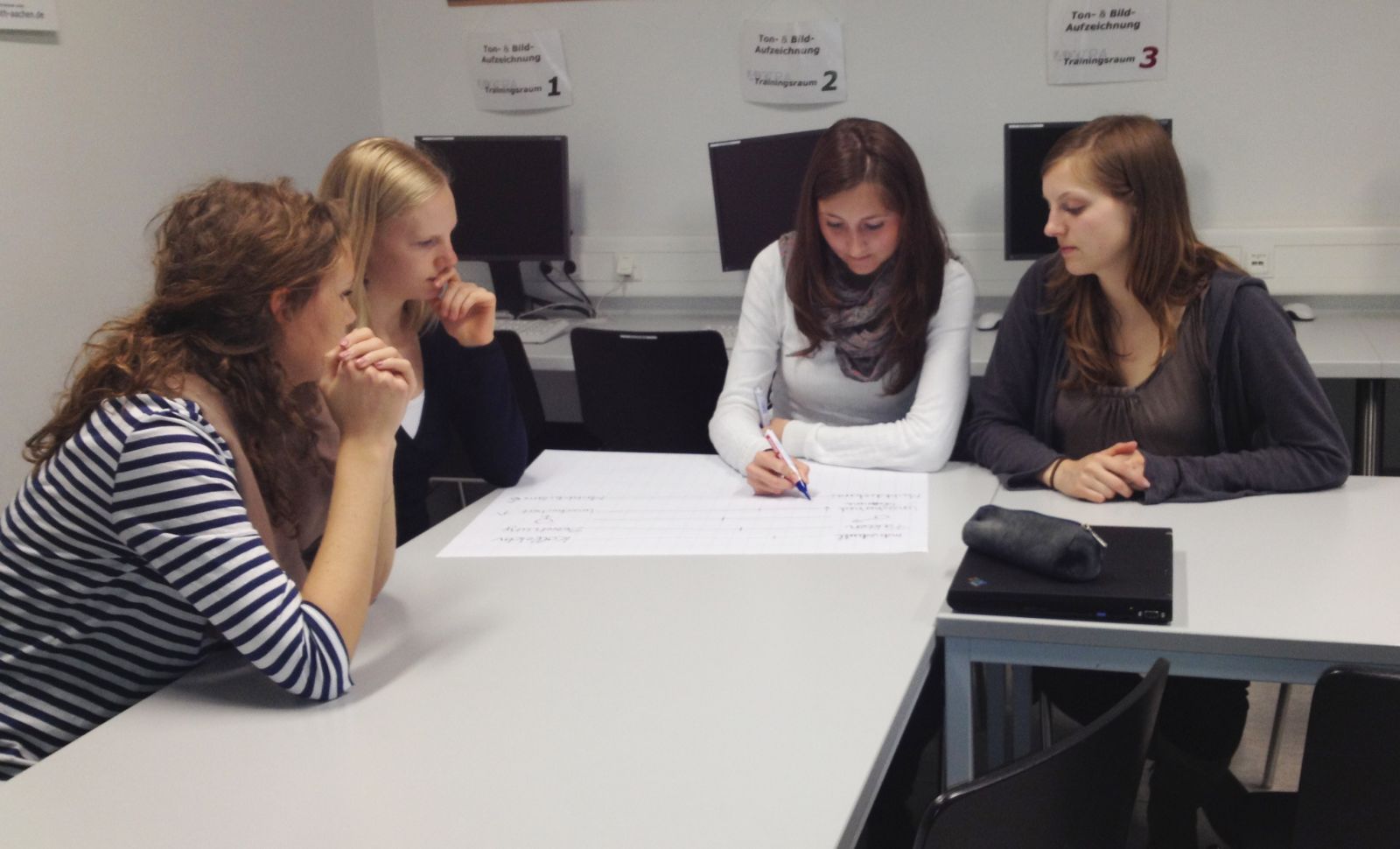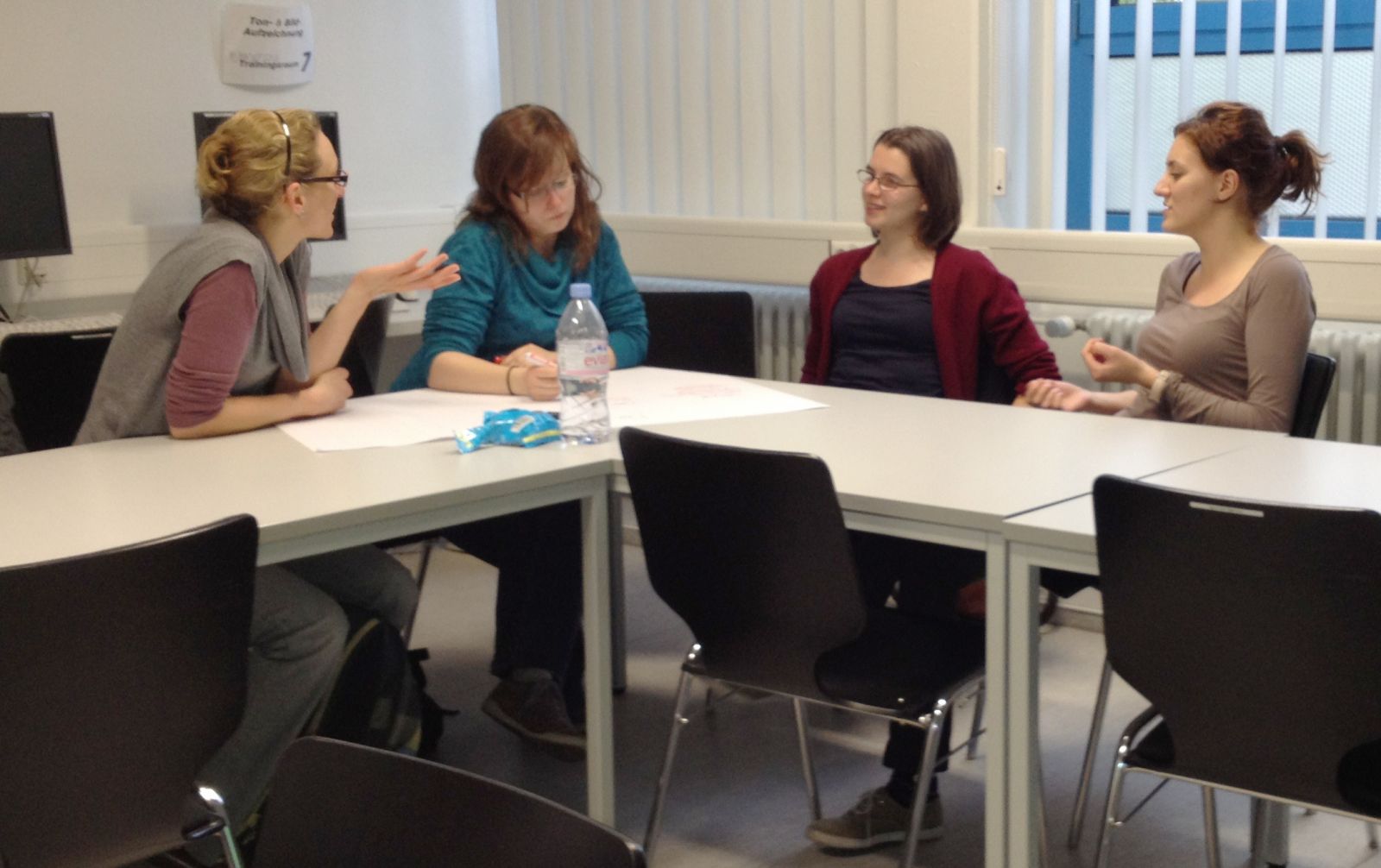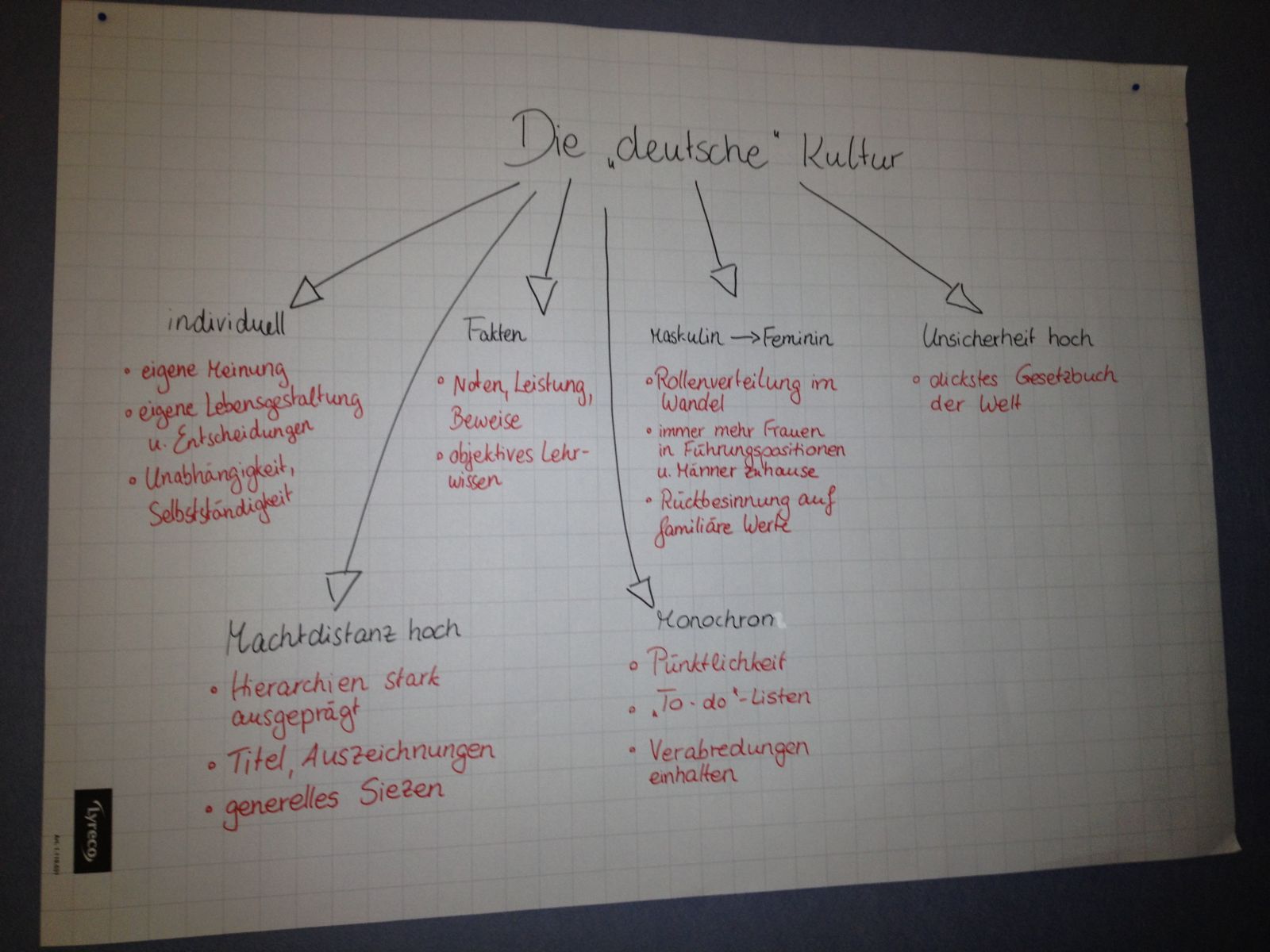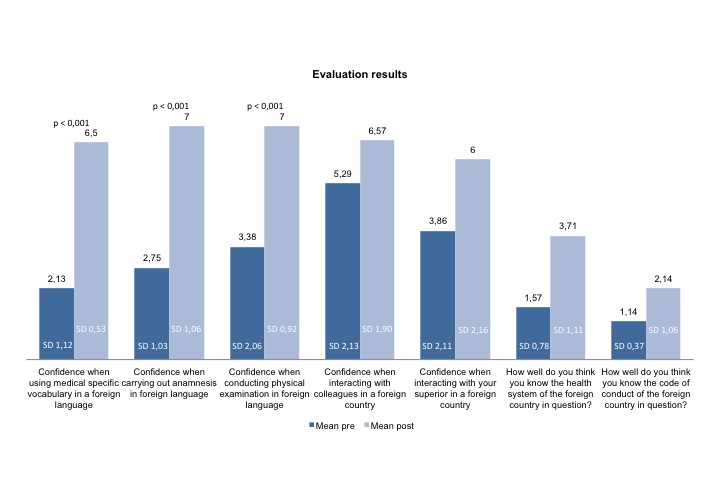


Theme
International Medical Education
Category
General
INSTITUTION
Faculty of Medicine - RWTH Aachen University, Germany

The course raises students' intercultural awareness, motivating them to further cognition on intercultural communication and increases their confidence in the interaction with patients abroad or in a foreign language.
Students working on one of the tasks


The Medicine curriculum in Aachen defines four time slots for student mobility. 42% of each cohort completes at least one rotation or semester abroad during their Medical study. Given the student mobility, the number of foreign patients in Germany and the lack of the intercultural aspects in the education, drove the Deanery of Study Affairs and the Skillslab AIXTRA to establish an intercultural communication course.
We split the participants into three groups, according to the language of choice. Combining different teaching methods, we approach different learning domains: training with standardized native speaker patients, gathering and presenting information about the health system and medical education of each target country, peer coaching (role play) and theoretical input.
Intercultural awareness is an important aspect in the physician-patient communication; hence, it is to be considered throughout the stages of Medical education.
Self-image reflection, result of one of the groups

We look forward to continuing and improving this course, we thank our students for showing their interest in this important topic, and the Faculty of Medicine of RWTH Aachen University, for the funds for the SP's.
Pre/post evaluation in self-perception indicates a significant improvement in many aspects. Furthermore, students rated the course as effective, recommendable and it fulfilled their expectations.

 Send Email
Send Email